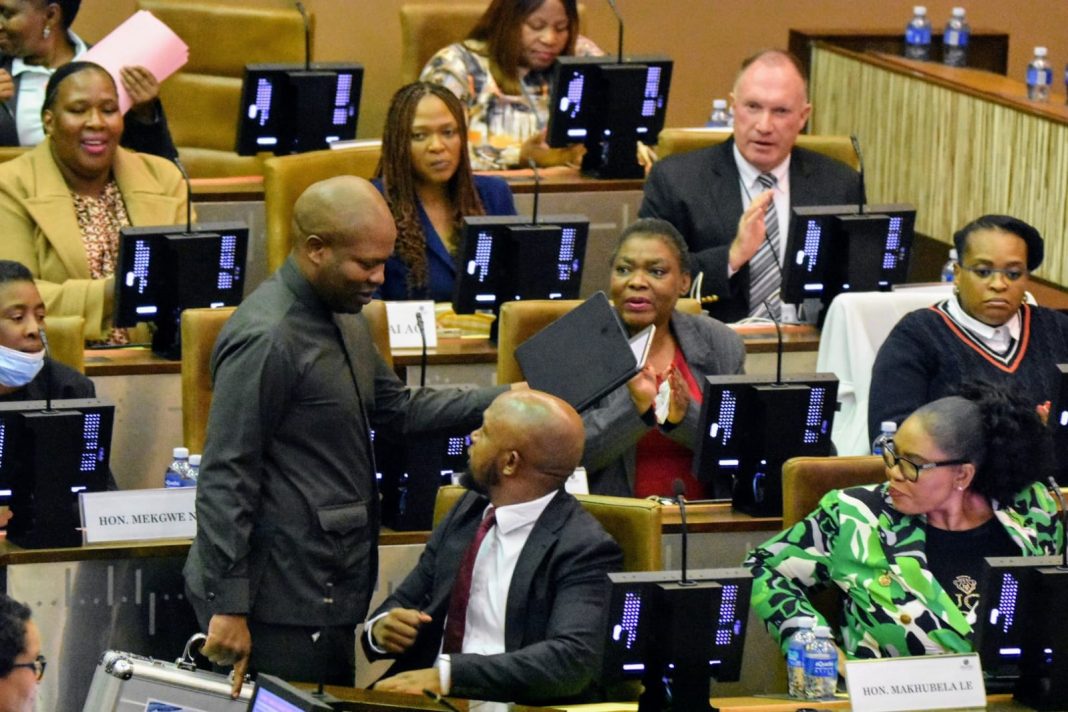By Thebe Mabanga
Gauteng finance MEC Lebogang Maile has cracked the whip on the province’s municipalities, urging them to table funded budget and has warned that residents can expect steep increases in the municipal rates in the years ahead as municipalities move towards cost reflective tariffs.
Maile tabled the 2025/2026 budget at the Gauteng provincial legislature on Tuesday and called on municipalities to table budgets that are “credible, relevant, and sustainable,” as well as fully funded.
Maile announced that based on tabled budgets so far, which are due for adoption by the end of this month, only four municipalities have tabled funded budgets.
He identified these as the City of Johannesburg, the City of Tshwane, Midvaal Local Municipality and Mogale City Local Municipality.
“The remaining municipalities tabled unfunded budgets, which is a serious concern.”
This would include the province’s other metro, the City of Ekurhuleni, which tabled its R65 billion budget last week.
“To reinforce fiscal discipline, the Gauteng Provincial Government and Gauteng municipalities must fund their requirements within the budget ceilings.” said Maile, who added that the province is supporting selected municipalities by conducting budget assessments.
Maile then turned his attention to municipals tariffs.
“On revenue matters, municipalities, with the assistance of the Gauteng Provincial Treasury, have conducted cost-reflective tariff assessments to determine if current tariffs adequately cover the full cost of delivering the service.” the MEC said.
He says the assessment found that “the calculated cost-reflective tariffs are significantly higher than the current rates, making them impractical for immediate implementation. Thus, municipalities are having to opt for a phase-in approach.”
This would suggest that rates will have to increase faster to eventually close the gap.
Maile says that trading services, like water, electricity, refuse removal, are currently operating at a loss due to tariffs that do not reflect the true cost of service provision.
This is one of the focus areas of Operation Vulindlela, the government reform programme now in its second phase.
To address water losses, the province aims to fix leakages, install smart meters and conduct community education.
The province also wants municipalities to consider ring fencing revenue from these services in a Special Purpose Vehicle to direct more of the revenue to maintaining the assets to provide the services.
“The effectiveness of these SPVs will depend on municipalities prioritising the financial ring-fencing of water and sanitation revenue, as well as ensuring that they develop a coherent and sustainable revenue generation strategy.”
Maile announced that the total draft capital budgets of municipalities in the Gauteng Province for the current financial year stands at R14.3 billion, with sanitation and electricity projects accounting for the largest share of this budget.
These are to address some of the 13 priorities identified by Panyaza Lesufi in his State of the Province Address (SOPA).
Municipalities will also benefit from allocation such as that of the Department of Co-Operative Governance and Traditional Affairs, which received R553 million this year and R1.7 billion over the next three years to strengthen integrated planning, cooperative governance and oversight.
The Department of Settlement received R323 million, with R232 million dedicated to informal settlement upgrade, a spending that will directly impact municipalities.
The department of roads and transport has earmarked R150 million for 54 priority roads across the province and R115 million for road and traffic light repairs while the department of infrastructure will spend R10.8 billion over the Medum term.
INSIDE METROS

